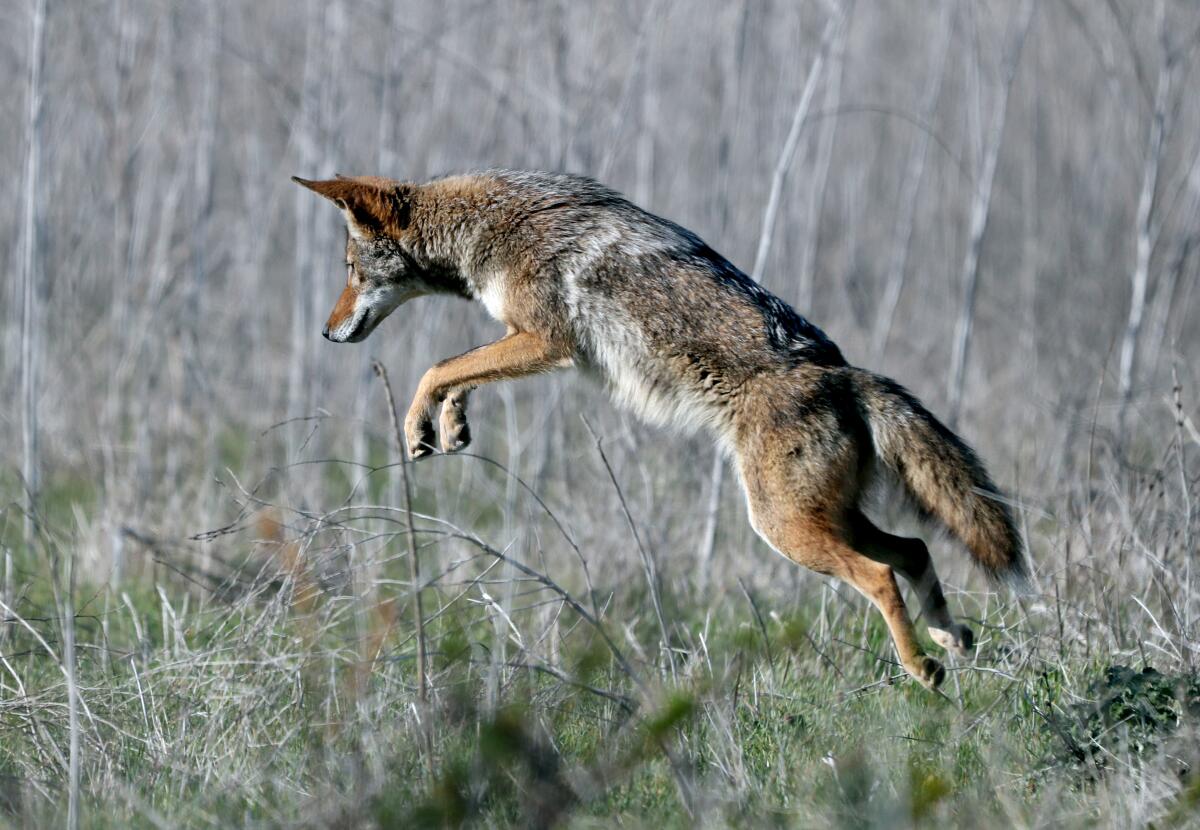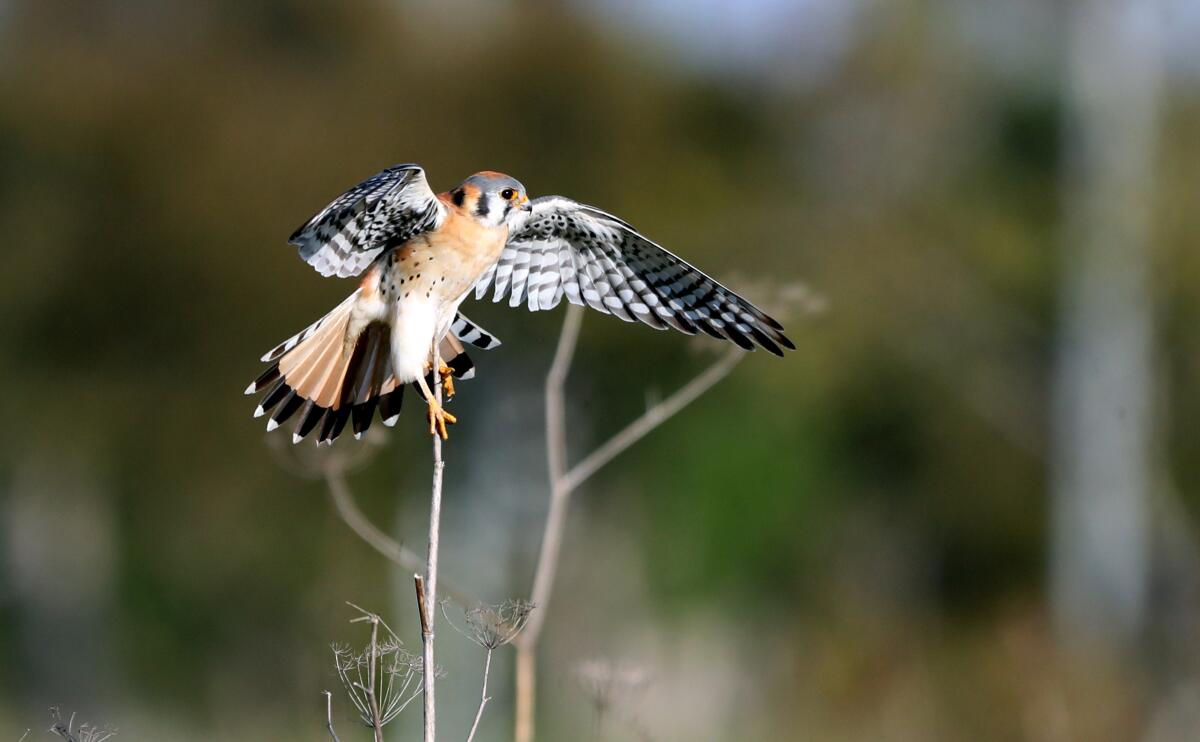Hobby aircraft club’s long glide at Costa Mesa park is on the skids
- Share via
A complex debate over whether city parks should be used for recreation or preservation is causing some turbulence in Costa Mesa.
Fairview Park — a 208-acre open space that’s home to about 30 protected species and has been found to contain artifacts from at least two Native American tribes — is also a draw for people who have, for decades, biked, picnicked and otherwise enjoyed the site.
For instance: the Harbor Soaring Society, a club for aviation enthusiasts and remote-control aircraft fliers. For more than 60 years, members have enjoyed the friendly skies at a model airplane flying field on Fairview’s west side.
Members were displaced in March 2020, when the city closed public facilities during the coronavirus pandemic. And while Fairview has reopened, the flying field remains off-limits as the city updates the site’s master plan and considers whether airplanes, gliders and drones are compatible with other park uses and priorities.
With its latest use agreement having expired in December, the society has been looking to re-up the arrangement. Leaders recently put forth proposals suggesting tougher restrictions on operating hours and the types of craft allowed, creating a means of measuring noise and requiring fliers seeking city permits to undergo certification, among other plans.
Still, the Fairview Park Steering Committee decided this month not to extend the club’s entitlement. The committee instead suggested possibly relocating the flying field to the park’s east side, where the Orange County Model Engineers operate locomotives on a miniature railway under a separate use agreement.
Cynthia D’Agosta, administrator of Fairview Park, said the move would reduce the impact of remote-control operators on vernal pools and other wildlife-rich areas on the west side, an area identified for future restoration.

“There’s been action to change direction of management of the park,” D’Agosta said, describing a shift from recreational uses to protection of open space. “So, we’re going to update the master plan to have more of a focus on restoration and biological management.”
Pushing that process forward and considering the environmental impacts of moving Harbor Soaring Society activities is a complicated process that could take from three to five years, D’Agosta said.
Society President Mike Costello said this week that talk of relocation has members worried that it’s only a matter of time before the club is completely pushed out of Fairview, the only park in Costa Mesa that allows flying.
“The steering committee wants us out,” he said. “They just keep stalling us and stalling us, and our membership declines as they put more restrictions on us. I’m going to guess by the end of the three-year evaluation process, they’re going to get rid of us.”
A longtime Costa Mesa resident, Costello enjoyed flying at Fairview in the 1970s and ‘80s and recently resumed his interest in 2016 after working two decades at Fountain Valley’s now-shuttered Hobby Shack.
He said Harbor Soaring Society’s 100-plus members run the gamut from retired aerospace engineers to kids interested in aviation and engineering. And while technology has progressed from simple gliders to electric-powered planes and even drones, most make sure to keep their park use respectful.
Still, there’s no accounting for novices, or kids who got a drone for their birthday and want to take it out without first learning the rules or seeking proper permits.
“We try to educate them, but enforcement is pretty hard,” Costello said.
D’Agosta said complaints from residents and park users over the noise generated by the remote-controlled planes and reports of an occasional flier venturing into a vernal pool to retrieve a downed craft have been stacking up over the years.
“Fairview is not your typical neighborhood park,” she said. “It is an open space, nature area that has a lot of floral and faunal activity that is important for Orange County, so it’s got a lot of biological eyes on it, all the way up to the federal level.”
Some of the local eyes are members of the Fairview Park Alliance, a preservation advocacy group.
Member Kim Hendricks said there has been little oversight of the Harbor Soaring Society’s use of the park and claimed a lack of enforcement of rules and policies has put wildlife at risk.

“The remote-control planes shouldn’t be there in the first place,” Hendricks said in an interview. “They definitely negatively impact the birds and wildlife there. And for years the city had overlooked that.”
But now, it seems, someone is paying attention.
The city’s Parks, Arts and Community Services Commission will review the steering committee’s decision in a May 27 meeting before making its recommendation to the City Council. D’Agosta said council members could review the matter as early as June.
Cardine writes for Times Community News.
More to Read
Sign up for Essential California
The most important California stories and recommendations in your inbox every morning.
You may occasionally receive promotional content from the Los Angeles Times.











